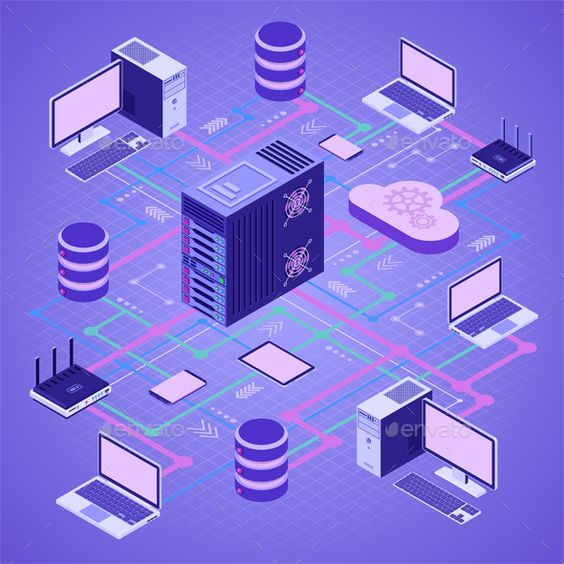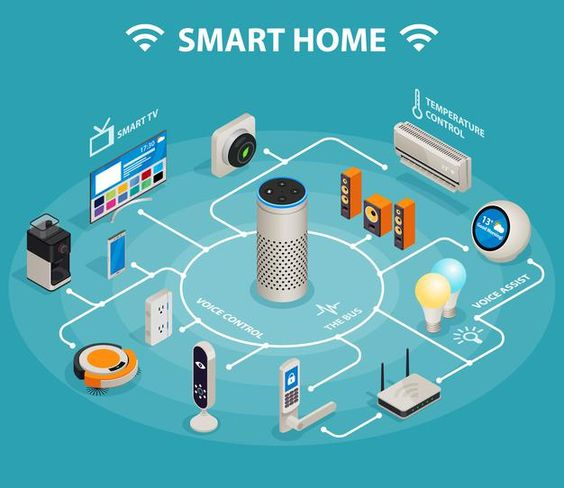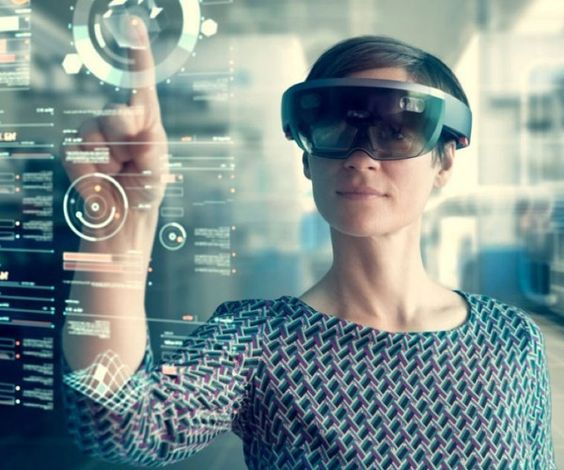Introduction:
Technology is at the forefront of revolutionizing how we live and work in today’s rapidly advancing and changing world. As students, staying ahead of the curve and adopting the top trending technologies that will shape the future is crucial. This includes Artificial Intelligence, Blockchain, cloud computing, the internet of Things, Cybersecurity, Virtual and Augmented Reality, and so on. By adopting these technologies, students can position themselves for success in the evolving job market and prepare for the technological advancement that will shape the future.
Table of Contents
1) Artificial Intelligence :
Artificial Intelligence (AI) refer to the simulation of human Intelligence in machines designed to think and act like humans. These machines can perform tasks that generally require human Intelligence, such as recognizing speech, making decisions, and translating languages.
Application of Artificial Intelligence:
Artificial Intelligence technology has advanced rapidly in recent years and is being adopted in various fields, including health care, finance, transportation, and customer service. AI is also used in manufacturing, retail, and security fields.
- Health care: AI is used in health for tasks such as image and speech recognition, drug discovery, and personalized treatment plans.
- Finance: AI is used in finance for fraud detection, risk management, and investment decision-making.
- Customer service: AI is used in customer service for tasks such as chatbots, virtual assistants, and voice-enabled customer support.
- Retail: AI is used in retail fields for various tasks such as demand forecasting, personalized product recommendation, and sales forecasting.
- Security: AI is used for various purposes such as threat detection, Cybercrime prevention, and biometric authentication.
Importance of AI for students:
As a student, it is essential to stay informed about the latest technologies and developments in AI and to understand its impact on society. Additionally, learning about AI can open new career opportunities in fields such as Machine learning, data science, and software engineering. By developing a solid understanding of AI concepts and techniques, you can position yourself to play a role in shaping the future of this rapidly growing field.
Conclusion:
In Conclusion, Artificial Intelligence is a rapidly growing field that has already had a significant impact on many areas and industries and will continue to do so in the future for enterprises and students.
For students, AI is essential for staying informed about the latest developments and preparing yourself for a career in this field.

2) Block chain :
Blockchain is a distributing ledger technology that allows for secure and transparent record-keeping of digital transactions. It was first introducing as the underlying technology for the digital currency Bitcoin in 2008.
Blockchain works by grouping transactions into blocks and adding them to a chain of previous blocks, forming a permanent and unalterable record of all trades. Each block is connected to the last block through cryptography and verified by a network of participants, making it resistant to tempering or modification.
Application of Blockchain:
Blockchain technology has the potential to revolutionize numerous industries and has a wide range of Practical applications. Some of the most significant applications include:
- Cryptocurrency : One of the earliest and most well-known applications of blockchain technology is cryptocurrency. Bitcoin, the first decentralized cryptocurrency, was created using blockchain technology in 2008.
- Supply Chain Management: Blockchain can improve supply chain management transparency, traceability, and efficiency by creating an immutable record of all transactions.
- Digital Identity Management: Blockchain can securely store and manage digital identities, enabling users to control and collect their personal information.
- Real Estate: Blockchain can be used to streamline the process of buying and selling real estate by securely and transparently tracking transactions and property ownership.
- Health care: It can be used to securely store and manage patient health records, enabling secure sharing of information between health care providers and improving the efficiency of the health care industry.
Importance of Blockchain for students:
Blockchain is a rapidly growing field that has the potential to change the world. Understanding the basics of blockchain and its potential applications is crucial for students, as it will likely play a significant role in many industries in the future. We will explore the key characteristics of the blockchain and why students need to learn about it.
- Decentralization: One of the key characteristics of blockchain technology is that it is decentralized, meaning that no central authority controls it. This is important for students because it represents a new model for storing and managing data, which is different from the traditional centralized models that have been used for many years.
- Career Opportunities: As blockchain technology continues to evolve and gain wider adoption, there will be increasing demand for individuals with expertise in this field. Students who develop a strong understanding of blockchain technology will be well-positioned to take advantage of the numerous career opportunities that will emerge in the coming years.
- Conclusion: In conclusion, blockchain technology is an essential field for students to study because it can change the world and create new opportunities. By learning about blockchain, students will develop a deep understanding of this unique and rapidly evolving technology, which will be invaluable for their future careers.

3) Cloud computing :
Cloud computing is a model of delivering and accessing computing resources, such as servers, storage, software, and database, over the internet on an as-needed basis. This allows users to access and use these resources without having to manage the underlying infrastructure. It enables faster innovation, flexible and economies of scale. The services provided by cloud computing are categorized into three main types:
Infrastructure as a Service (IaaS), platform as a service (PaaS), and software as a service (SaaS).
Applications of Cloud Computing:
Cloud computing has become a crucial technology in today’s world, offering a wide range of applications and benefits. Cloud computing allows users to access and use computing resources, such as servers, storage, software, and databases, over the internet.
- Business Applications: Cloud computing provides businesses with access to enterprise level applications such as customer relationship management.
- Storage and Backup: Cloud storage and backup services allow users to store and backup their data securely and access it from anywhere.
- Content Delivery Networks: CDN services use cloud computing to distribute content, such as videos and images, globally to ensure fast and efficient delivery to users.
- Virtual Desktop Infrastructure: VDI allows users to access their desktop environment from any device, anywhere, and at any time, making remote work from efficient by the help of cloud computing.
Importance of Cloud computing for students:
- Career opportunities: Cloud computing is a rapidly growing field with a high demand for skilled professionals. Understanding cloud computing can open up numerous career opportunities for students in areas such as cloud architecture, cloud storage, and cloud security .
- Hands-on Experience: Students can gain hands-on experience by using the cloud computing services, learning how to design, implement, and manage cloud solutions.
- Prepare for Future: Cloud computing is changing the way businesses operate and the way we use the cloud computing technology. By learning about cloud computing, students can prepare for the future and be at the forefront of technological advancements.
- Enhance learning: Cloud computing provides students with access to a wide range of learning resources, including online courses, tutorials, and simulations, which can enhance their understanding of the subject.
- Stay competitive: With cloud competitive skills becoming increasingly in demand, students can stay competitive in the job market by gaining expertise in this area.
- Conclusion: In conclusion, cloud computing is an important technology for students to learn, as its offers numerous career opportunities, hands-on experience, preparation for the future, enhanced learning, and a competitive advantage in the job market for students.

4) Internet of Things :
The Internet of Things (IoT) is a network of physical objects like cars, homes, and other appliances that are equipped with electronics, software, sensors, and other components. and network connectivity, which enables these objects to collect and exchange data. In addition, the IoT allows for the creation of smart systems and environments, as it enables these devices tcommunicate with each other and with other internet-enabled systems and devices, creating opportunities for more direct integration of the physical into computer-based systems and resulting in improved efficiency, accuracy, and economic benefits.
Application of Internet of Things (IoT):
The Internet of Things has numerous appliances across a wide range of industries, including:
- Smart Homes: IoT devices can control and monitor various aspects of a home, such as lighting, temperature, security, and home appliances.
- Health care: IoT-enabled medical devices and wearables can monitor vital signs, track medication usage, and provide Telemedicine services.
- Industrial IoT: Internet of things (IoT) technologies are used to optimize industrial processes, increase efficiency, and improve safety in manufacturing, logistics, and energy industries.
- Agriculture: IoT sensors can monitor soil conditions, track crop growth, and optimize irrigation systems.
- Retail: IoT technologies are used for inventory management, customer behavior analysis, and supply chain optimization in the retail sector.
Here are a few reasons why IoT is important for students:
- Career Opportunities: IoT is a rapidly growing field and is expected to create many job opportunities in software development, data analysis, Cybersecurity, and hardware engineering.
- innovation and Problem Solving: IoT allows students to use technology to solve real-world problems and create innovative solutions.
- Future-Ready Skills: Understanding IoT will help students develop programming, data analysis, and network security skills that are in high demand in many industries.
- Understanding of Emerging Technologies: IoT is just one example of the many technological advancements shaping our world, and understanding it will give students a broader perspective on how technology impacts society and changes the way we live and work.
In conclusion, studying IoT will provide students with a strong foundation in the technologies shaping their future and help them prepare for a rapidly changing job market.

5) Cyber security :
Cybersecurity refers to the protection of internet-connected systems, including hardware, software, and sensitive data from unauthorized access, theft, and damage. With the increasing reliance on technology and the internet, Cybersecurity has become an essential aspect of modern society. From Personal data to critical infrastructure, everything is at risk of Cyber attacks. As such, Cybersecurity measures are crucial in ensuring the safety and privacy of digital information and in protecting against potential Cyber threats such as viruses, malware, phishing, and hacking. The field of Cybersecurity is rapidly evolving, requiring organizations and individuals to stay informed and proactive in safeguarding their digital assets.
Application of Cybersecurity:
Cybersecurity has a wide range of applications, affecting nearly all aspects of modern society.
Some of the Key Application of Cybersecurity includes:
- Banking and Finance: Protecting sensitive financial data, transactions and ensuring the integrity of the financial systems against the Cyber attacks.
- Health care: Securing patient health information of any hospital, medical records and ensuring privacy and security in the handling of medical data.
- Government and Military: Protecting sensitive information and critical infrastructure, as well as ensuring the confidentiality and integrity of the government and Military operations.
- Retail: protecting customer personal and financial data from Cyber theft and abuse attacks.
- Education: Protecting students data, academic records and ensuring privacy and security in the educational institutions departments.
Cybersecurity is an ever-evolving field and its applications continue to expand as technology advances. As such, organizations and individuals must say vigilant in implementing and maintaining strong Cybersecurity measures to protect against potential Cyber threats.
Importance of IoT for students:
Cybersecurity is a crucial aspect of the future and has a significant impact on the careers and future prospects of students. In today’s age, the vast majority of industries require a basic understanding of Cybersecurity.
The Following are the reasons why student should consider studying Cybersecurity as part of their future careers:
- High Demand: The demand for Cybersecurity professionals is rapidly increasing as organizations and governments become more aware of the Cyber attacks such as hacking, malware attacks, viruses.
- Career Opportunities: Cybersecurity offers a wide range of career opportunities, from network security to incident response, penetration testing and Cybercrime investigations.
- High-paying jobs: Cybersecurity is one of the highest-paying fields in the technology fields, with salaries starting at $70,00 and rising to six-figure salaries for more senior positions.
- Protecting Critical Infrastructure: Cybersecurity professionals play a critical role in protecting national securely and critical infrastructure from Cyber threats.
- Career Growth: The field of Cybersecurity is constantly evolving, offering students the opportunities to stay ate the front of technological advancements and continuously improve their skills.
In conclusion, the importance of Cybersecurity cannot be overstated, and students should consider studying this field to secure a successful and rewarding future.

6) Virtual and Augmented Reality :
Virtual reality is a computer-generated simulation of a three-dimensional environment that can be interacted with in a seemingly real or physical way. VR typically requires the use of a headset or similar device to view the environment and can be used for a wide range of applications including gaming, education, and training.
Augmented reality AR involves superimposing computer-generated graphics, sounds, or other information onto the real world in real time. This allow users to see and interact with virtual objects as if they were real, in the context of their physical environment. AR can be experienced through a variety of devices including smart-phones, tablets, and specialized glasses.
Application of Virtual and Augmented reality;
Virtual Reality has numerous applications across various industries, including:
- Gaming: VR provides an immersive gaming experience, allowing players to enter and interact with the virtual worlds.
- Education: VR can be used to simulate real-world scenarios and environment, making it an effective tool for learning and training.
- Health care: VR is used in various medical applications, such as surgical simulation, therapy,and pain management.Augmented reality also has a wide range of applications, including:
- Advertising and Marketing: AR can enhance marketing campaigns by allowing users to interact with virtual products and experiences.
- Education: AR can be used to enhance learning experiences by providing visual aids, interactive simulations, and additional information.
- Military: AR can be used to enhance battlefield situational awareness and provide real-time information to soldiers.
Importance of Virtual and Augmented reality for students:
VR and AR have the potential to play a significant role in the future of education and student learning.
Some of the benefits of VR and AR for students include:
- Immersive learning experiences: VR and AR can provide students with highly engaging and interactive learning experiences, allowing them to explore and understand complex concepts and environments in a way that is not possible with traditional methods.
- Hands-on learning: VR and AR enable students to interact with and manipulate virtual objects, simulations, and environments, providing a more hands-on and experiential approach to learning.
- Access to new and Diverse experiences: VR and AR can provide students with access to, such as visiting historical sites, exploring far-off locations, or learning about different cultures.
- Collaborative learning: VR and AR can facilitate collaboration and teamwork, allowing students to work together in virtual environments and on virtual projects.
Overall, VR and AR have the potential to transform the way students learn, providing them with new and innovative learning experiences that are both engaging and effective.

7) 5G Technology :
5G is the 5th generation mobile network. It is a new global wireless standard after 1G, 2G, 3G, and 4G networks. 5G enables a new kind of network that is designed to connect virtually everyone and everything together including machines, objects, and devices.
5G wireless technology is meant to deliver higher multi-Gbps peak data speeds, ultra low latency, more reliability, massive networks capacity and more.
Application of 5G Technology;
- Enhanced mobile broadband: In addition to making our smart phones better, 5G mobile technology can use in new immersive experiences such as VR and AR with faster, more uniform data rates, lower latency, and lower cost-per-bit.
- Mission-critical Communications: 5G can enable new services that can transform industries with ultra-reliable, available, low-latency links like remote control of critical infrastructure, vehicles, and medical procedures.
- Massive IoT: 5G is meant to seamlessly connect a massive number of embedded sensors in virtually everything through the ability to scale down in data rates, power, and mobility—providing extremely lean and low-cost connectivity solutions.
Importance of 5G Technology for students: 5G technology is the fifth generation of wireless communication technology that promises to bring major advancement in various fields. For students, the importance of 5G technology can be seen in the following ways:
- Enhanced connectivity: 5G technology offers faster and more reliable internet connectivity, which will enable students to access and process information faster and more efficiently.
- Remote learning: 5G technology will allow students to attend virtual classes, connect with teachers and classmates, and access educational resources from anywhere, making education more accessible and inclusive.
- Career opportunities: The increasing demand for 5G technology will create new career opportunities in areas such as network engineering, software development, Cybersecurity, and more.
- Innovation: 5G technology will enable new innovations in fields such as health care, transportation, and entertainment, providing students with exciting new areas to explore and advance their careers.
Overall, 5G technology has the potential to significantly impact student’s futures, and it is important for them to understand its importance and potential impact on their lives and careers.

